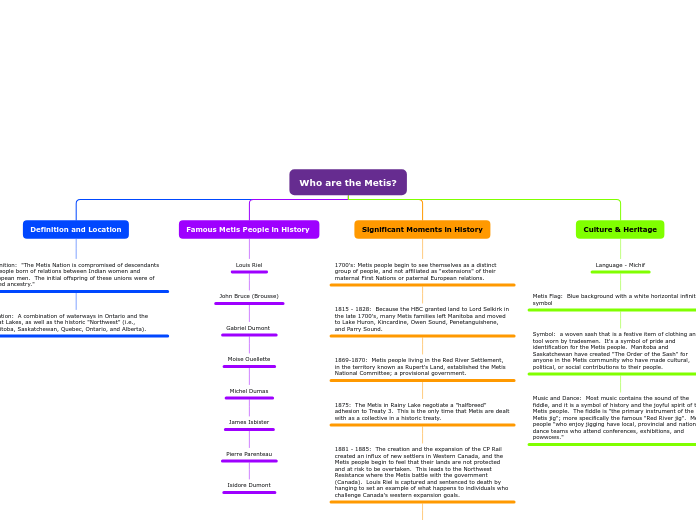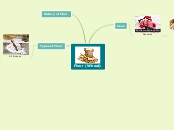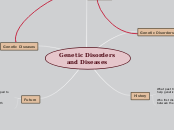Who are the Metis?
Culture & Heritage
Language - Michif
Metis Flag: Blue background with a white horizontal infinity symbol
Symbol: a woven sash that is a festive item of clothing and a tool worn by tradesmen. It's a symbol of pride and identification for the Metis people. Manitoba and Saskatchewan have created "The Order of the Sash" for anyone in the Metis community who have made cultural, political, or social contributions to their people.
Music and Dance: Most music contains the sound of the fiddle, and it is a symbol of history and the joyful spirit of the Metis people. The fiddle is "the primary instrument of the Metis jig"; more specifically the famous "Red River jig". Metis people "who enjoy jigging have local, provincial and national dance teams who attend conferences, exhibitions, and powwows."
Significant Moments in History
1700's: Metis people begin to see themselves as a distinct group of people, and not affiliated as "extensions" of their maternal First Nations or paternal European relations.
1815 - 1828: Because the HBC granted land to Lord Selkirk in the late 1700's, many Metis families left Manitoba and moved to Lake Huron, Kincardine, Owen Sound, Penetanguishene, and Parry Sound.
1869-1870: Metis people living in the Red River Settlement, in the territory known as Rupert's Land, established the Metis National Committee; a provisional government.
1875: The Metis in Rainy Lake negotiate a "halfbreed" adhesion to Treaty 3. This is the only time that Metis are dealt with as a collective in a historic treaty.
1881 - 1885: The creation and the expansion of the CP Rail created an influx of new settlers in Western Canada, and the Metis people begin to feel that their lands are not protected and at risk to be overtaken. This leads to the Northwest Resistance where the Metis battle with the government (Canada). Louis Riel is captured and sentenced to death by hanging to set an example of what happens to individuals who challenge Canada's western expansion goals.
1900 - 1938: Metis people try to adjust and adapt to their way of life, petition the government to acquire hunting rights and land rights, and Alberta Metis secure a land base known as Alberta Metis Settlements.
1950's - 1970's - Metis and Aboriginal peoples try to draw attention throughout Ontario and Canada of the deplorable living conditions in their communities.
1982: Metis are recognized as one of Canada's three Aboriginal Peoples
1983: The Metis National Council is established to represent the Metis Nation from Ontario westward.
1988: Metis are included in a modern day land claim agreement.
1993 - 2003: The Metis Council of Ontario (MCO) is established and challenges Ontario's hunting laws alongside Steve and Roddy Powley; Ontario's hunting laws are inapplicable to them as Metis people. The Supreme Court of Canada affirms that the Metis are a distinct Aboriginal people with protected harvesting rights, according to Canada's constitution.
2008: MNO and the government of Ontario sign a Framework agreement that recognizes the unique way of life of the Metis people in the province. This is the beginning of the collaborative relationships in Ontario.
2010 - 2020: Canada's parliament as well as the Ontario and Saskatchewan legislatures recognize 2010 as the "Year of the Metis" which then leads to the decade of the Metis.
Famous Metis People in History
Louis Riel
John Bruce (Brousse)
Gabriel Dumont
Moise Ouellette
Michel Dumas
James Isbister
Pierre Parenteau
Isidore Dumont
Definition and Location
Definition: "The Metis Nation is compromised of descendants of people born of relations between Indian women and European men. The initial offspring of these unions were of mixed ancestry."
Location: A combination of waterways in Ontario and the Great Lakes, as well as the historic "Northwest" (i.e., Manitoba, Saskatchewan, Quebec, Ontario, and Alberta).









